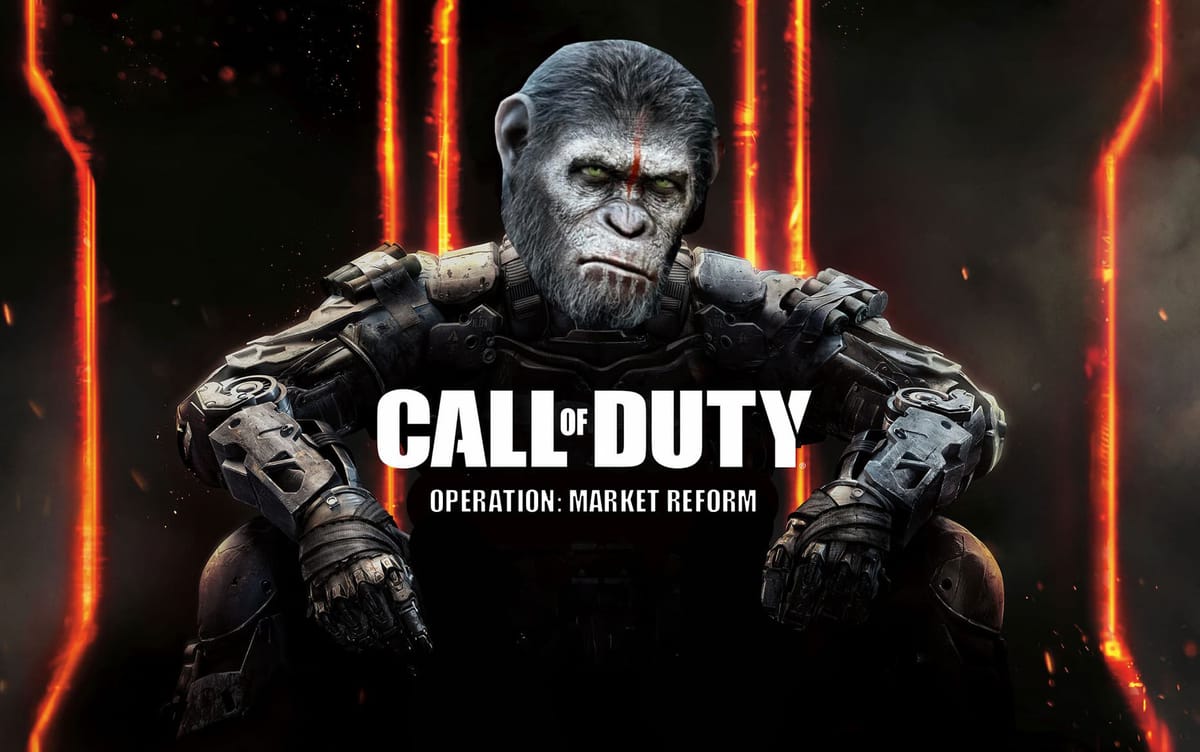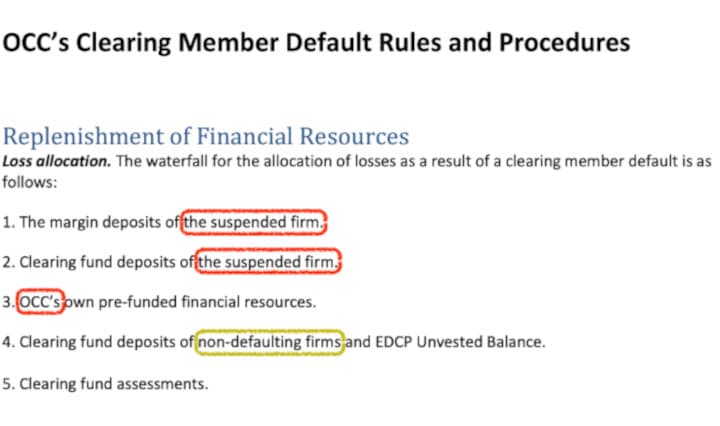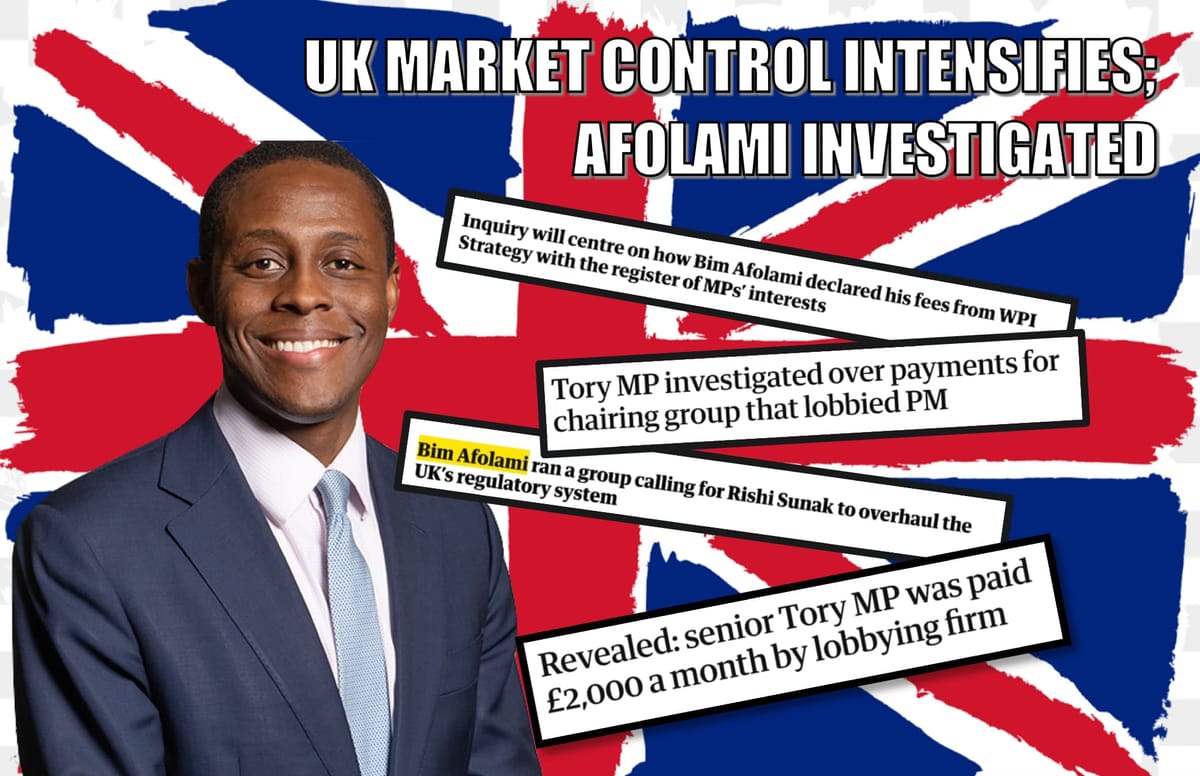A review of UBS's FINRA 'discipline': UBS found to have inadequate short selling supervision & system flaws exploited--fueling potential naked shorting and abuse in GameStop.
Penalty? Not having to admit or deny the findings, a censure, and $2.5 million fine

https://www.finra.org/sites/default/files/fda_documents/2016050211701%20UBS%20Securities%20LLC%20CRD%207654%20AWC%20Final%20geg%20%282022-1667434816509%29.pdf
Hello Superstonk, I hope everyone is enjoying a great start to the weeknd!
I would like to share some more FINRA 'discipline' with y'all.
As these releases convey a ton of information I am going to try a bit of a different approach, I hope this format makes sense.
- First, I am going to outline what UBS did from points from the filing.
- Next, I am going to pull the rules they broke and attempt to provide wut mean definitions
- Third, I am going to try and break each section against UBS down a bit further.
Let's hit it!

What UBS did (without admitting or denying):
Firstly, for about three years, they improperly used a type of transaction or limit order to deal with some obligations they had when they failed to deliver shares. In the end, this resulted in over 5,300 violations of one part of Rule 204 (that's the part that mandates timely delivery of shares) and 71,000 violations of another part of the rule that says you've got to pre-borrow shares before selling them short.
Then, for nearly seven years, UBS 'messed up' again when they released shares from being "locked up" after a customer made a long sale (meaning they bought the stock expecting its price to rise). Instead of putting these released shares aside to settle any outstanding fail-to-deliver obligations they had, they ended up miscounting the number of shares they needed to borrow or purchase to keep in line with Rule 204.
To add to this, for several periods between 2009 and 2016, four of UBS's systems didn't stop all short sales (selling borrowed shares hoping to buy them back cheaper) in securities where they already failed to deliver, leading to another 2,567 rule violations.
From 2009 all the way up to August 2022, UBS failed to maintain an adequate supervisory system to ensure they were playing by the rules. They ignored their own procedures, missed a bunch of red flags, and as a result, they ended up violating even more rules, NASD Rule 3010 and FINRA Rules 3110 and 2010. These rules are all about maintaining proper supervisory procedures and ethical standards.The Rules UBS broke:

Wut mean?
Regulation SHO was brought to life by the SEC to tackle the issues of ongoing failures to deliver shares and potentially abusive "naked" short selling.
Now, Rule 204(a) of Regulation SHO demands that broker-dealers, like UBS, clean up their mess when they fail to deliver shares after short sales. They're supposed to do this by borrowing or buying an equal amount of securities before regular trading begins on the day after the original settlement date.
These broker-dealers can use what's called VWAP (volume-weighted average price) transactions to buy securities to close out a fail, but there are some conditions. The order has to be in by the start of trading hours on the close-out date, and it can't be taken back. Just setting limit orders or other delayed orders won't cut it.
If a broker-dealer doesn't clean up their fail-to-deliver mess as per Rule 204(a), Rule 204(b) steps in. This rule stops the broker-dealer from making any more short sales in that security unless they first borrow or arrange to borrow the security. This is known as the "penalty box" provision. The security stays in the "penalty box" with this pre-borrow requirement until the broker-dealer buys equal securities and the purchase goes through successfully.
Finally, breaking Rule 204 of Regulation SHO also means breaking FINRA Rule 2010. This rule requires members to uphold high standards of honor and fair trade principles in doing their business--something UBS did NOT do here!UBS Failed to Close Out FTDs:

Wut mean?
- From 2008-2019, UBS was supposed to use something called VWAP (volume-weighted average price) orders when buying shares to meet its obligations under Rule 204(a) of Regulation SHO (that's the rule that says they have to clean up after they fail to deliver shares from short sales). But UBS got sneaky. They reserved the right to cancel these VWAP orders and actually did cancel 124 orders intended to buy shares to close out open fails-to-deliver (FTDs) from November 2015 to October 2018. Additionally, their algorithm sent limit orders for the full size of the buy-in obligation to close out small FTDs. This affected 10%-15% of the firm's buy-in orders. This led to UBS not taking the necessary steps to address FTDs around 5,300 times.
- From 2009 to March 2016, UBS played a bit more fast and loose. They wrongly considered shares freed up from customer long sales (when a customer buys expecting the price to rise) as shares they could use to satisfy their Rule 204(a) obligations. This led them to miscalculate their obligations, messing up whether FTDs existed and how many shares they needed to borrow or purchase to close out the FTDs.
- For GameStop, if big players like UBS can bend the rules and get away with not delivering shares they've short sold, this can potentially contribute to market manipulation, creating false supply and exerting downward pressure on the stock's price!UBS Routed or Executed Short Sale Orders in Securities with an Open Fail:

Wut mean?
- From 2009-2018, every time UBS used a revocable VWAP (volume-weighted average price) or limit order to buy shares to close out their failures to deliver (FTDs), they were actually violating Rule 204(a) of Regulation SHO. The result? These shares should've been put in the "penalty box" as per Rule 204(b), but UBS didn't do it.
- Instead, they didn't restrict short sales in these securities, leading to at least 71,000 short sales in securities they still owed on without first borrowing or arranging to borrow the shares.
- Adding to that, from 2009 to 2016, three of UBS’s systems didn't check their list of penalty box securities to stop all short sales. Even worse, one system checked for customer trades, but not their own broker-dealer trades. And, in a month of 2016, a fourth system failed to monitor and restrict trading in penalty box securities added during the trading day after a routine update. This led to these systems allowing short sales in securities they still had to close out on, causing another 2,567 violations of Rule 204(b) in July 2016.
How does this tie back to GameStop? Well, when UBS can avoid closing out their short positions and keep shorting, it can create false selling pressure on GME!UBS Failed to Establish and Maintain a Supervisory System, Including Written Procedures, Reasonably Designed to Achieve Compliance with Rule 204:

Wut mean?
- FINRA Rules 3110(a) and 3110(b) are all about making sure member firms have systems and written procedures to supervise their people's activities, ensuring compliance with laws, regulations, and FINRA rules. Violating these equals violating FINRA Rule 2010.
- From 2009 to August 2022, UBS's supervisory systems and written procedures (WSPs) didn't meet the standards of Rule 204 of Regulation SHO. They didn't pick up on red flags about their VWAP algorithm sending out close-out orders that weren't up to snuff according to Rule 204(a). Around 10% to 15% of their close-out actions from November 2015 to October 2018 went unnoticed because of this.
- UBS updated its close-out process in October 2018 but didn't get its WSPs in line until February 2019. Up until August 2022, their WSPs still allowed the cancellation of VWAP orders in certain situations, which is a big no-no.
- On top of this, from 2009 to 2016, UBS treated shares released from customer long sales as eligible for inclusion in their delivery and close-out obligations calculation. Despite their annual compliance testing, they didn't pick up on how this could lead to them undercalculating these obligations as per Rule 204(a) of Regulation SHO.
- Since 2009, UBS's WSPs stated their systems would block short sales of securities with FTDs, complying with Rule 204(b)'s penalty box. But, they didn't notice that four of their systems didn't comply with their WSPs until a system glitch in 2016 made them check for Rule 204 compliance.
- Two of these systems had been flawed for six and seven years, respectively.Penalty?

Do not have to admit or deny the findings, a censure, and $2.5 million fineHow UBS behavior could impact GameStop:
- Not Properly Closing Out Fails-to-Deliver (FTDs): Since UBS did not take necessary actions to close out FTDs resulting from short sales by borrowing or purchasing securities of like kind and quantity by the deadline, it created a situation where more shares appear to be in circulation than actually exist.
- Improperly Handling Shares from Customer Long Sales: Since UBS incorrectly included shares from customer long sales in their calculation of delivery and close-out obligations, it may lead to underestimating the number of shares they needed to purchase or borrow to close out the FTDs.
- Short Selling Without Borrowing Shares: UBS executing short sales in securities with an open FTD without first borrowing or arranging to borrow the shares as required could allow for more naked shorting. This is because they are essentially creating a short position without having actual shares to back it up.
- Failing to Check the 'Penalty Box': Since UBS order management systems fail to check the firm's list of "penalty box" securities and prohibit all short sales in these securities, this allowed for further short sales in GameStop....
- Misuse of Algorithmic Trading Practices: Since UBS algorithm sends limit orders instead of properly buying in to close out an FTD, they further delayed the necessary actions to correct the FTDs.TLDRS:
UBS violated several SEC and FINRA regulations related to handling and reporting short sales and fails-to-deliver (FTD) securities.
- Their algorithm wrongly sent limit orders for fully closing out small FTDs, affecting 10%-15% of their buy-in orders. This led to UBS failing to address FTDs approximately 5,300 times.
- Between 2009 and 2016, UBS mistakenly counted shares released from customer long sales as available for closing out FTDs. This led to incorrect assessments of their delivery and close-out obligations.
- They executed about 71,000 short sales in securities with an open FTD without first borrowing or arranging to borrow the shares as required.
- Three of their systems didn't check their penalty box securities to stop all short sales from 2009 to 2016, with one system only checking customer trades, not their own. After a routine update in 2016, a fourth system failed to restrict trading in penalty box securities during the trading day, resulting in an additional 2,567 Rule 204(b) violations in July 2016.
- Despite updating its close-out process in October 2018, UBS didn't align its written supervisory procedures (WSPs) until February 2019. Even then, their WSPs permitted the cancellation of VWAP orders in some cases until August 2022.
- From 2009 to 2016, UBS included shares from customer long sales in their calculation of delivery and close-out obligations. Despite annual compliance testing, they missed how this could lead to undercalculating these obligations as required by Rule 204(a) of Regulation SHO.
- UBS's WSPs claimed their systems would block short sales of securities with FTDs as per Rule 204(b)'s penalty box from 2009. But, they only realized that four of their systems didn't comply with their WSPs after a system glitch in 2016 made them check for Rule 204 compliance. Two of these systems had been flawed for six and seven years, respectively.
- Penalty? Not having to admit or deny the findings, a censure, and $2.5 million fine



